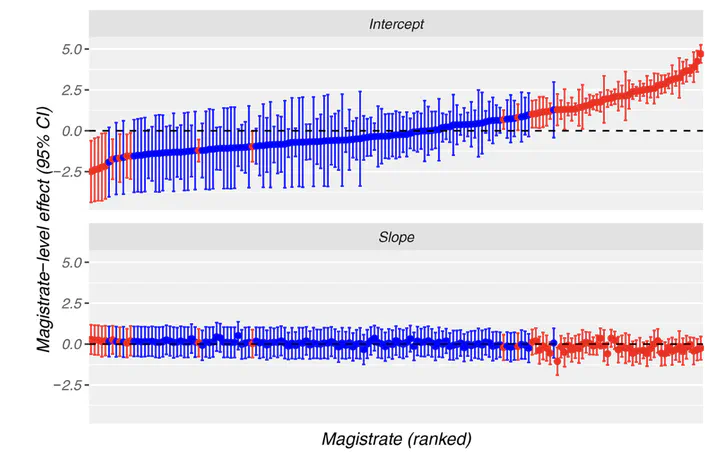The influence of neighbourhood disadvantage on charge dismissal: the case of drunk driving
 Figure 2
Figure 2Abstract
We use a sample of 78,160 cases involving adults who pleaded guilty to drunk driving in a New South Wales (NSW) court between 2014 and 2019 to assess the contribution of neighbourhood disadvantage to charge dismissal. Data are analysed using a multilevel random effects model with controls for magistrate identity and legal factors that must be considered by the magistrate when deciding whether to dismiss a PCA charge against an offender. Findings indicate that magistrates with a higher dismissal rate are more lenient towards individuals from advantaged or highly advantaged socio-economic neighbourhoods. Magistrates with a lower dismissal rate, are less lenient toward those from advantaged or highly advantaged socio-economic neighbourhoods. Neighbourhood disadvantage has a statistically significant effect on judicial willingness to dismiss a charge of drink driving and record no conviction. The effect is small but affects many people.
Type
Publication
Current Issues in Criminal Justice, 36(3), 265–282